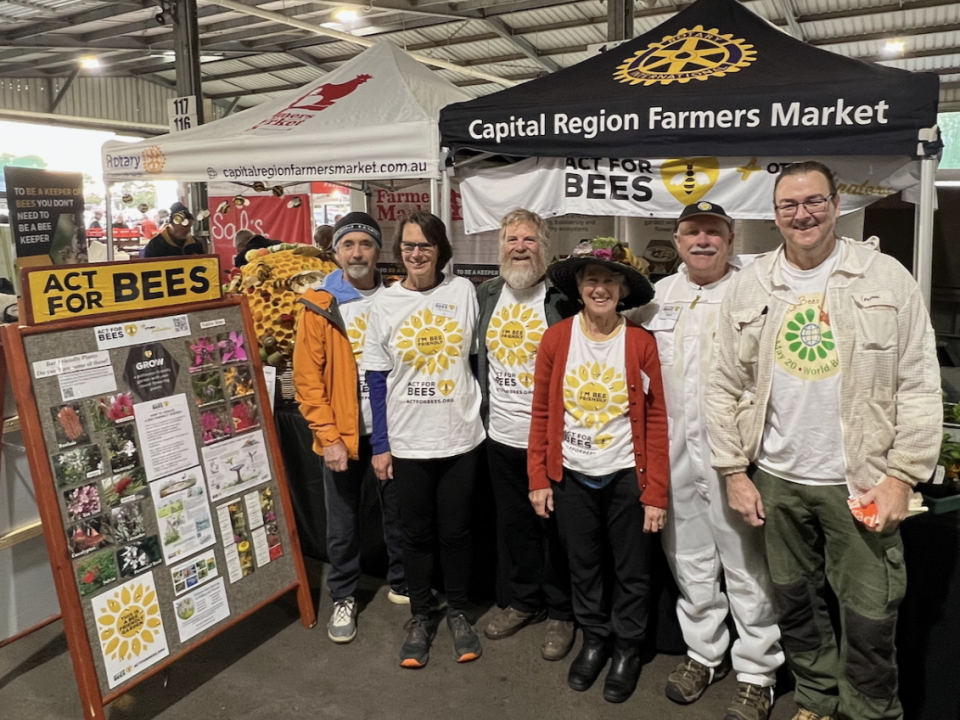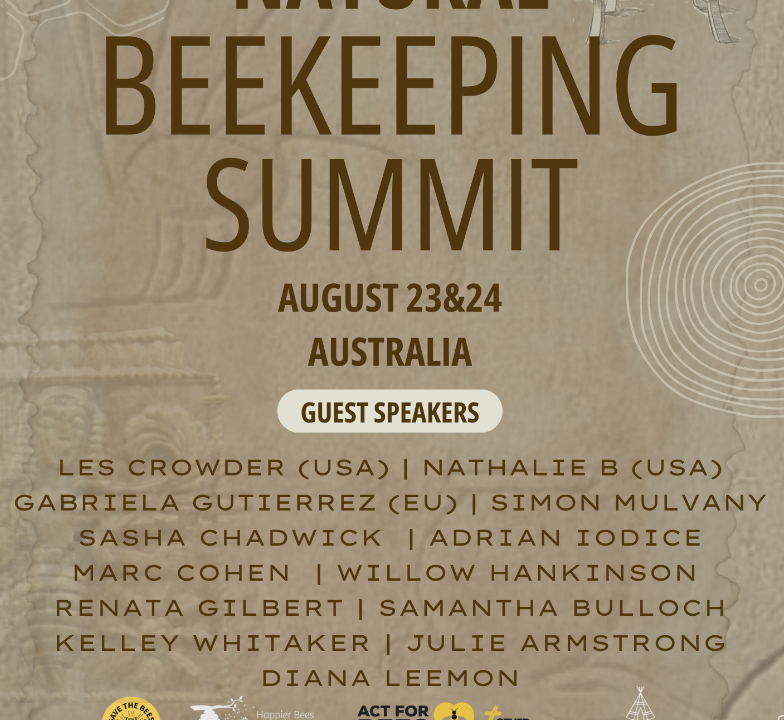Pollinators Matter! World Bee Day 2021
May 19, 2021A bounteous Spring for pollinators
September 6, 2021Did you celebrate the Winter Solstice on 21 June? It is the longest night in the year and in ancient times, the Winter Solstice was a time of celebration as it marked the return of longer days and nature’s bounty with the warmth of the sun. You may have already noticed the signs of the “rebirth” in parts of your garden – swelling buds on deciduous trees and shrubs, flowering bulbs and the return of some insect pollinators. Little spinebills and wrens are feasting on the nectar of grevilleas and banksias and some wattles are already in flower. This annual cycle of is a truly wondrous thing and in winter, we have, as Michael Leunig says, “time to go inside”- metaphorically and physically.
Our inspiration this newsletter is from a book published a few years ago called The Moth Snowstorm: Nature and Joy by Michael McCarthy, John Murray Publishers 2013. This book has two basic premises. First, that we’ve not just lost many species of flora and fauna, but that we’ve also lost abundance in surviving species. Second, that “it is time for a different, formal defence of nature. We should offer up not just the notion of being sensible and responsible about it, which is sustainable development, not the notion of its mammoth utilitarian and financial value, which is ecosystem services, but a third way, something different entirely: we should offer up what it means to our spirits; the love of it. We should offer up its joy.”
The book includes an emerging body of scientific literature about the beneficial physical, emotional and mental health benefits of being in nature. A couple of other recent publications in this vein are The Well-Gardened Mind: Rediscovering Nature in the Modern World by Sue Stuart-Smith, Phosphorescence by Julia Baird and Losing Eden by Lucy Jones. So go inside and snuggle up with these good reads! Be inspired and let your love of nature be expressed!

What’s been happening?
April, May and June were a busy and wonderful time for ACT for Bees. We made the front page of The Canberra Times with our successful event at Ginninderry showing how developers, landscape architects and other businesses can plant for year round flowering for pollinators. The 15 min presentations from the expert speakers are on our website in the Pollinator Corridor section.
ACT for Bees was very active in the World Bee Day (week) celebrations around Canberra beginning with the traditional ‘Slovenian Honey Breakfast’ being celebrated by Kingsford Smith kindergarten and year 1 students along with a play ‘Be a bee and pollinate the apple trees’ which was very popular with the students and starred on ABC news on World Bee Day.
The Saturday Capital Region Farmers Markets were buzzing with people dressed as bees and ABC local radio broadcasting live with interviews of local growers and bee experts with a focus on pollinators. The Embassy of Sweden event focused on Panel Discussion on Sustainable Food Great conversation on the importance of bees and other pollinators for our food systems, responsible production and consumption and the need to preserve our biodiversity. It was a very full week!
Julie also presented at the ‘Food in the Capital’ event which brought together local and regional farmers and producers, food businesses and manufacturers, community groups thought leaders and policy makers, about the importance of growing a secure local food system in the ACT. Keep tuned for the next instalment ‘Building City-Region Food systems 9-10 August 2022.
In June, ACT for Bees was at the SEE-Change Parliament of Youth event which had focused on ‘What is one action we can take to thrive on Ngunnawal Country?’ We were part of a range of activities from local organisations during the breaks. It was a wonderful experience to be with so many enthusiastic students who were keen to learn about native bees and join in the ‘Bee quiz and ‘Be a Bee’ activities. Congratulations to Anna Garnock and the SEE-Change team for such a great event.

Other groups focusing on education and planting for pollinators in Australia
The Wheen Bee Foundation is the organiser for World Bee Day and Australian Pollinator Week and creating fantastic ‘Powerful Pollinators’ resources to encourage insect pollinators in farm and garden landscapes in different regions.
Pollinator Link in Brisbane has eye catching and informative resources on planting for birds, butterflies and bees and ways to become a certified pollinator link member. Check out the recent post about ‘Ginninderry is planting for pollinators‘
Rotarians for Bees in Melbourne is focused on building awareness of the need to protect & support bees amongst our 1.2 million members worldwide and encourage action to support pollinators and their role in agriculture & horticulture around the world, thus ensuring food security. Join in ‘Colour your World’ planting project in your garden.
The Heart Gardening Project in South Melbourne. The BEE Gardens are Australia’s first public gardens dedicated to the sustenance of honey bees and native bees and habitat for native bees. BEE stands for Bees, Education and Environment.
Planting Seeds in Sydney is work to protect and enhance the natural environment by engaging people in urban and peri-urban settings to plant and augment native vegetation that supports endangered pollinators, sustainability and biodiversity.
Kit Prendergast Bees in the Burbs is a native bee researcher and educator in WA who is a native bee expert and published Creating a Haven for Native Bees.
The Mudgee Bee project aims to boost native bee awareness in the Mudgee region, by encouraging households, farmers, businesses and local councils to reduce herbicide and pesticide use, as well as increase native bee-friendly planting and habitat.
Please let us know about other projects!

Interesting Resources from the Web
- A good synopsis of the Urban Agriculture Form live-streamed in April 2021 from Melbourne. “I’ve been feeling overwhelmed by the enormity of what we need to do to reverse climate change and improve global health. The Urban Agriculture Forum was just the reinvigoration and grounding that I needed”
- Greener Spaces Local Govt Urban forestry Management- highlight urban development. This 2021 report provides a deep-dive into the state of urban forestry management in Australia’s urban Local Government Areas (LGAs): what’s working, what’s not, and what’s next in Australia and world wide. Where will All the Trees Be? Local Govt results
- An article by Australian scientists about 26 threatened butterfly species around Australia
- The Intergovernmental Science-Policy Platform on Biodiversity and Ecosystem Services (IPBES) and the Intergovernmental Panel on Climate Change (IPCC), two of the international bodies responsible for dealing with these crises held a joint workshop in December 2020. The key message is that limiting global warming and protecting biodiversity are not only essential but also mutually supporting. Measures that are narrowly focused on climate change or biodiversity can have sub-optimal (or even negative) outcomes compared with measures that tackle both. You can read the report.
- British writer, Lucy Jones (mentioned above) reflects on the importance of nature for physical, emotional and mental health especially in the time of COVID
- American academic Natasha Myers sets out the ten not-so-easy steps to create liveable worlds
There was recently an article in The Conversation on what kinds of books help kids connect with trees, and more broadly, connect with nature.
The Kids’ Books mentioned in the article were:
The Book of Australian Trees by Inga Simpson and Alicia Rogerson
The Forest in the Tree by Ailsa Wild, Aviva Reed, Briony Barr and Gregory Crocetti
Little Sap by Jan Hughes and Ruth Hengeveld
Peter and the Tree Children by Peter Wohlleben
Can you Hear the Tree Talking by Peter Wohlleben
Plantastic! A new A-Z to 26 of Australia’s most unique and incredible native plants by Catherine Clowes and Rachel Gyan
Alert readers will recognise some of these titles from earlier newsletters which just goes to show that good reads get recommended more than once!
And while still on great things for kids, check out the newly released Conservation Council’s of the ACT resources for schools . Well worth a download!
Hive Mind: Honeybees, Democracy and Me is on at the Museum of Australian Democracy with a fascinating insight into the stories of beekeeping at Australia’s Parliament Houses, both old and new, and shares what we could learn from bees on collective decision making for democracy.



